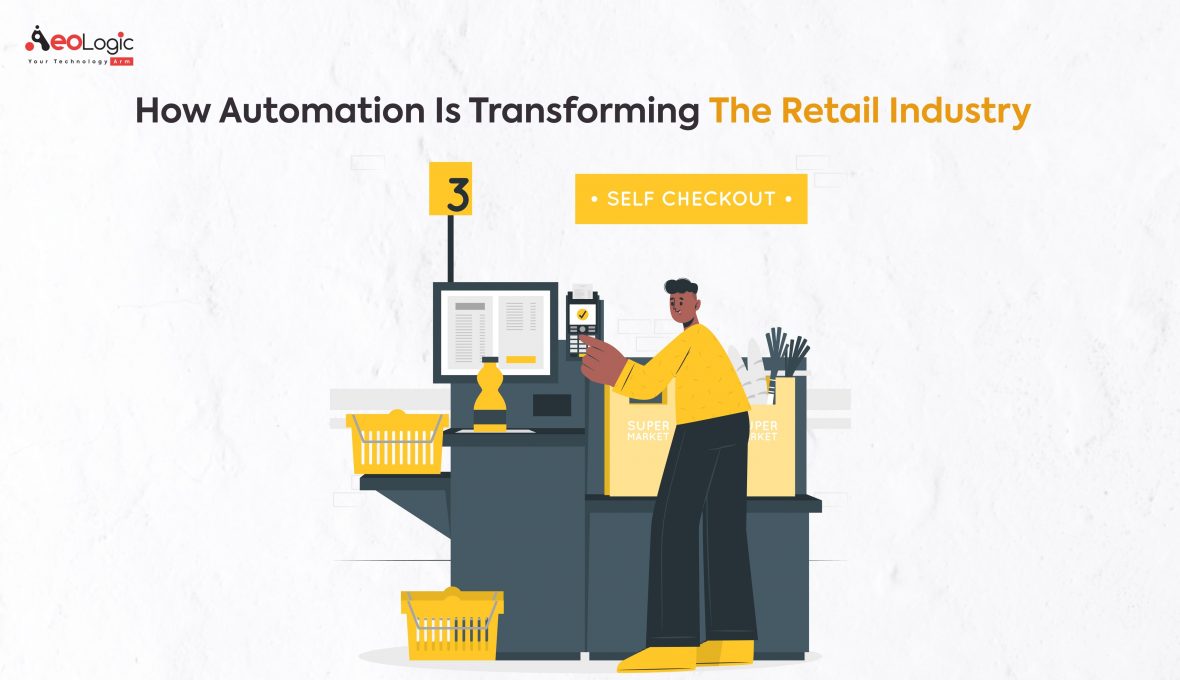Hello there! Have you noticed how fast the world is changing around you? Among the most transformative forces, you’ll find technology, particularly automation. And if you’re wondering, “Where?” Let me assure you, it’s all around you.
Today, I’m going to dive into a topic that’s near and dear to all of us shopping! Specifically, we’re going to examine how automation in the retail industry is revolutionizing the way we shop and interact with stores.
Automation in the Retail Industry is not only meeting the demands of the present but also shaping the future.
Automation: A Retail Revolution
Before we venture further, let’s take a moment to understand what automation really is. It involves using technology to streamline processes and tasks that would otherwise require human intervention. But, how does this relate to retail?
According to a McKinsey report, automation could save the retail sector approximately $447 billion each year, reducing working hours by up to two-thirds. The power of automation in the retail Industry is undeniably transformative.
Automated Checkouts and Self-Service Kiosks
Have you noticed self-checkout counters popping up at your local grocery stores? These automated checkouts are just one of the ways automation is transforming retail.
By eliminating the need for a cashier, customers can enjoy faster, smoother transactions. Retailers, on the other hand, can save on labor costs and allocate resources to other areas requiring human touchpoints.
Smart Shelves and IoT
The use of smart shelves equipped with weight sensors and internet of things (IoT) technology can detect when products are running low and automatically order more. No more empty shelves! This means that you can always find your favorite items in stock. It’s another excellent example of “Automation in the Retail Industry” at work.
Boost your business performance with our automation solutions!
Virtual Assistance and Chatbots
Ever had a question while shopping online? Chances are, you’ve interacted with a chatbot or a virtual assistant. These AI-powered tools can handle a variety of customer service tasks, from answering frequently asked questions to providing personalized product recommendations.
Also Read: The Benefits of Using Automation in Manufacturing
How Automation Impacts the Retail Industry
When it comes to automation in the retail industry, it’s impossible not to talk about the significant impacts it has made. It’s not just about making transactions easier, it’s about transforming the whole retail experience. Here are some of the ways automation impacts the retail industry:
#1 Streamlining Operations
From inventory management to restocking shelves, operations become significantly smoother with automation. It reduces the time taken for tedious tasks and minimizes the risk of human error. This efficiency can also lead to cost savings, as resources can be redirected to areas where they are needed most.
#2 Enhancing Customer Experience
Retail automation enhances your shopping experience in numerous ways. Faster checkouts, improved customer service, personalized recommendations, and less waiting around are just some of the advantages. In the age of digital shopping, customers expect a seamless experience, and automation is the key to providing that.
#3 Driving Business Decisions
Automation doesn’t just streamline operations and enhance customer experience it also provides valuable insights for businesses. By analyzing customer data and shopping trends, retailers can make informed decisions about everything from product placements to store layouts and promotional strategies.
#4 Facilitating Omnichannel Retail
With the rise of e-commerce, customers are shopping on multiple channels online, in-store, on mobile apps, and more. Automation facilitates an omnichannel retail approach by ensuring a seamless, integrated customer experience across all channels.
So, as you can see, automation doesn’t just change the way we shop it fundamentally transforms the way retailers operate. From the back end to the front end, from the warehouse to the checkout counter, automation in the retail industry is making its mark in every corner of the retail world. And I believe that’s something worth embracing, don’t you?
Also Read: Top Smart Home Automation Systems You Should Use in 2023
The Future of Automation in Retail
As we look ahead, automation will continue to be a game-changer in the retail industry. Personalized shopping experiences powered by AI, robotic assistance in stores, and drone deliveries are no longer science fiction they’re on the horizon.
So, what does this mean for you and me? Well, it means that our shopping experiences are about to get a whole lot easier, faster, and more personalized.
Let’s look into the crystal ball and see what the future might hold.
1. Personalization at Its Peak
With the rise of big data and machine learning, automation will make personalized shopping experiences the norm, not the exception. Think about AI systems that remember your preferences and suggest products accordingly, or smart fitting rooms that recommend outfits based on your style and body type.
2. Seamless Omnichannel Experiences
We talked about omnichannel retail earlier, and it’s set to grow even further. Automated systems will create seamless connections between online and offline shopping experiences. You could start shopping on a mobile app, continue on a laptop, and finish in-store – all without missing a beat.
3. Rise of Robotic Assistance
Robotic assistance will no longer be limited to warehouses and distribution centers. We’ll see more robots in the front end – in stores. They’ll assist customers, restock shelves, and handle other routine tasks, making your shopping experience even more convenient and efficient.
4. Sustainable Retail Practices
Automation will also play a pivotal role in driving sustainability in retail. From optimizing delivery routes to reduce carbon emissions to managing waste better, automation will help retailers to operate more sustainably. That’s a win for businesses, consumers, and the planet.
5. Contactless Transactions and Digital Payments
Post-pandemic, we’ve seen a significant shift towards contactless transactions and digital payments, and this trend is here to stay. Automation in the retail industry will continue to support and enhance this shift.
Imagine walking into a store, picking up what you need, and leaving without having to queue for checkout. With the help of automation and technologies like RFID and IoT, this seamless shopping experience is becoming a reality.
Moreover, digital payments, including mobile wallets and cryptocurrencies, will become even more prevalent. This will not only enhance customer convenience but also provide retailers with more data to analyze customer behavior and preferences.
The future of automation in the retail industry is looking bright, don’t you think? While we can’t predict everything that lies ahead, it’s clear that automation is set to redefine retail in exciting and innovative ways.
Also Read: Benefits of Marketing Automation You Need to Know
Final Thought
Automation in the retail industry is not just a trend, it’s the future. It promises an exciting, efficient, and engaging shopping experience for all of us.
So, next time when you’re shopping either online or in a store take a moment to appreciate the power of automation. Remember, you’re not just shopping; you’re experiencing the future of retail.
Ready to explore the potential of retail automation? Reach out to us at Aeologic Technologies, together, we’ll revolutionize your retail experience and shape the future of shopping.
Frequently Asked Questions
How Does Automation Improve the Shopping Experience?
Automation makes shopping faster, more efficient, and personalized. It simplifies processes, reduces waiting times, and ensures always-available stock, leading to a more satisfying shopping experience.
Will Automation Lead to Job Losses in the Retail Industry?
While automation might replace some routine tasks, it’s not about eliminating jobs but shifting the job landscape. Automation can free up employees to focus more on customer service and sales, leading to more engaging roles in the industry.






